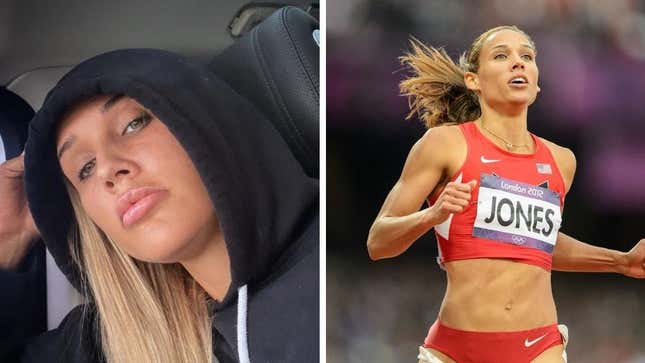Olympian Lolo Jones Says Three Men Have Stalked Her in the Last Year
“I’m DONE,” the 40-year-old bobsledder wrote on Instagram. “If there was any confusion here is me being very fucking clear: I’m not interested. EVER."
EntertainmentEntertainment

Three-time Olympian Lolo Jones said in an Instagram post Tuesday that she has had three separate male stalkers in the last year alone.
The 40-year-old Olympic hurdler and bobsledder says the incidents have “jeopardized” her and her friends’ safety and “altered my life.” One of the men, she writes, broke into the Olympic training center and stayed overnight in hopes of finding Jones there. The second has allegedly repeatedly harassed her friends in an effort to contact her. She claims the third man stalked her house and later told the police he knew Jones from Instagram and that she had invited him to live with her. She included screenshots from a surveillance device that show that individual outside her door, though she wasn’t home at the time.
“I’m DONE,” she wrote in the caption. “If there was any confusion here is me being very fucking clear: I’m not interested. EVER. This is not the way to go.”
-

-

-

-

-

-

-

-

-

-

-

-

-

-

-

-

-

-

-

-

-

-

-

-

-

-

-

-

-

-

-

-

-

-

-

-

-

-

-

-








































